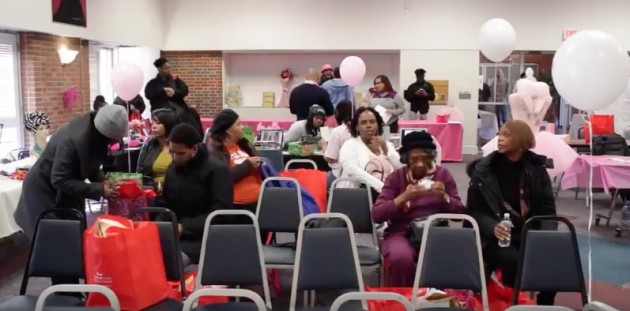
Photo Courtesy: The Boys Institute
WASHINGTON – Third to fifth grade African-American young boys, addressed as “kings,” come together through The Boys Institute to tell their own stories.
The Institute meets Tuesdays through Thursdays at Stanton Elementary School to cultivate the stories of these boys through multiple creative outlets, such as through the lens of a camera or painting on the back of their jean jackets to proudly wear or express themselves through poetry.
“Young black boys have powerful stories,” Marshall Pollard, director of The Boys Institute said in a statement. “Stories that have been intentionally devalued due to the oppressive history of our country.”
“They deserve an education that creates opportunities for them to cultivate their stories and, by doing so, spark a network of believers around them who demand excellence with and for them,” Marshall also said.
This institute encourages them to live out their own narratives contrary to the ones that have already been written for them. They assert that they want them to be the narrators of their own stories.
The Boys Institute was born out of conversations amongst staff, who were specifically concerned with their male students, at Stanton Elementary School.
“Myself and a lot of other staff members noticed there was something different about how we were doing school for our boys,” said Mikel Oliver, managing director of The Boys Institute.
“If you walked into any classroom the student separated from the group was a boy. When you looked at students who weren't able to participate in school-wide initiatives it was primarily boys. Students, who were in the dean's office or receiving referrals, even out-of-school suspensions, it was boys.”
After the official launching of the Institute in July 2016 there has been noticeable changes amongst the “kings.”
“I have seen the impact of the program in how the kings see themselves, the language in which they speak and how they interact. I hear kings speak about showing integrity, spreading peace and not frustration. I see kings stepping up to diffuse situations amongst their peers,” said Oliver.
BreeAnna Haynes, a fifth-grade teacher at Stanton Elementary said that she noticed the impact of The Boys Institute with one of her students, who previously had a bad reputation that preceded him. “…Because of The Boys Institute he is very self-aware, he wants to do better, be better and be a leader. He checks himself and says, ‘this isn’t king behavior, what would a king or leader do?’ There is a change in how the boys act and carry themselves,” said Haynes.
The institute claims to be a safe space for kings to defy the odds and to shape who they are despite the negative statistics. The Boys Institute currently holds 45 students, partnering them with several leaders to guide them on their journey during their time with the organization.
A mentor in The Boys Institute and co-founder of Infinite Evolution Youth Empowerment Initiative, Kirk Keys, said “When I was younger my mother inquired about getting me a mentor because of my father’s absence. It was my mentor that taught me most of the values that I go by today. I thought if all of my friends that I grew up with had a mentor like me, they would be in better positions because of the guidance.” Keys has been a mentor for 10 months. “I love being able to provide guidance for our kids and being someone they can relate to,” said Keys.
“I like being a part of The Boys Institute because it encourages young black boys,” Jakhai, 10, said.
“When we graduate we leave [with] integrity and hope. We are an example for other boys.” Jakhai said his favorite thing about the program “is when they come together and talk about how they can help boys that look like him.”
“I want the world to see them as I see them. To see the beauty in all their ugliness,” said Oliver. “They are different by nature and can’t really conform to some of the restrictions that we have in this system of education and because of that they are mislabeled. The narrative of who they are and can become is written by someone else.”







